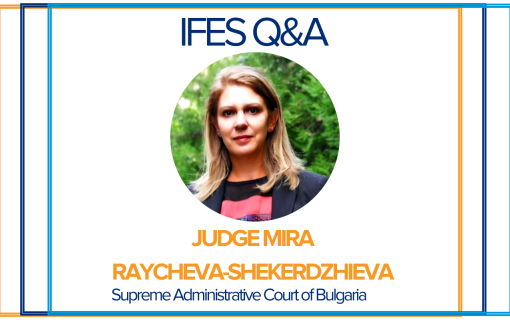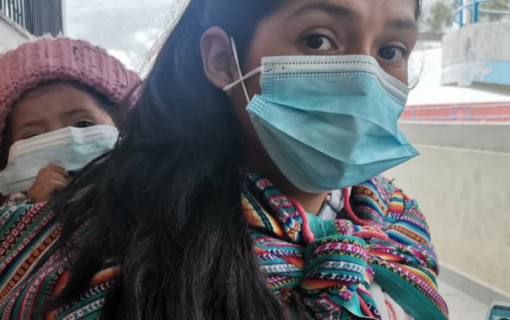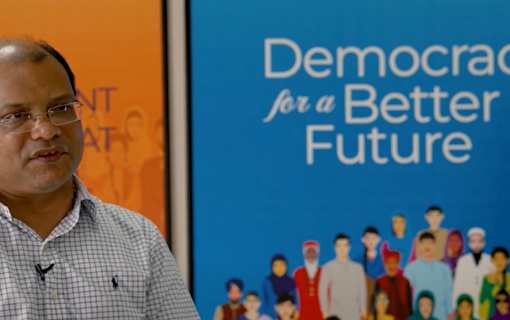An Orderly Rebellion: Bulgarias Transition from Dictator to Democracy, August 1990
EXECUTIVE SUMMARY
In June 1990, Bulgaria conducted its first competitive multiparty elections in fifty seven years. The International Foundation for Electoral Systems sent a seven member team to observe these elections. The IFES team traveled extensively throughout Bulgaria to observe the June 10 primary elections and the June 17th runoff elections.
The team found that administratively the Bulgarian Central Electoral Commission had done a remarkable job of organizing the elections. Within ninety-five days of passage of the Election Act on March 12, 1990, an electoral structure was established, election commissions were formed, registration and voting procedures were designed, and the first competitive election since before World War II was conducted. Seven million voters selected from more than 3,000 candidates from forty political parties, with a voter turnout rate exceeding ninety percent.
The members and staff of the Central Electoral Commission (CEC), and of the volunteer regional and section (precinct) election officials, displayed a genuine desire to conduct an election that would produce clear, incontrovertible winners of seats in the Grand National Assembly, which will draft a new constitution. The CEC implemented a very successful voter education program, including nightly television spots on the electoral registry, polling locations, ballot formats, single-mandate and proportional representation seats, ballot security, and allowable partisan activities. As a result, voting at all observed locations went surprisingly smoothly.
The vote count was accurate, and no attempt was made to hide or delay the election results. Disputes stemmed largely from occasional misunderstandings of election procedures. Charges of intimidation were heard mostly in areas where the opposition parties had no electoral strength or campaign presence, and few poll watchers.
The results of the Bulgarian elections have been reported by many Western media outlets as a victory for the Bulgarian Socialist Party (BSP). While the former Communists won 52% of the seats in the Assembly, they fell far short of electing the two-thirds majority necessary to approve all proposals. The BSP candidates found strong support in rural areas and among blue-collar voters, while the Union of Democratic Forces (UDF) enjoyed the support of urban intellectuals and younger voters.
In winning 36% of the Assembly seats, the UDF achieved a remarkable feat. This coalition of sixteen political parties, organizations, and movements, formed in December 1989, managed to resist the centrifugal forces of a divisive campaign. The polished UDF campaign featured rallies, demonstrations, and other accoutrements of professionally managed political parties. This movement toward pluralization in Bulgaria will be very difficult to reverse.
IFES had a very positive role in the Bulgarian elections. The three-person pre-election assessment team, which met with the CEC in April, helped the Commission identify its needs and the potential pitfalls of its law and procedures. This team arranged for the Canadian government to donate the required ten tons of continuous-feed computer paper, for use at the CEC. Also in response to this needs assessment, and addressing the crucial concern of ballot security, IFES donated ballot transport security pouches and tabs to the CEC, to be used to convey vote tallies and records of official complaints. The pouches and tabs contributed substantially to the confidence of section and regional electoral officials, and the electorate at large.
The election observer team, in addition to working nationwide to document implementation of the law and avert incidents of fraud by its very presence, was provided access to the CEC computer center, to observe tabulation of official election results. When voter unrest at the "delay" in counting the ballots was at its height, IFES specialists responded to a CEC request to tape a special television interview, lending an authoritative perspective to perception of the short time between poll closing and announcement of complete official results.
A limited number of procedural and substantive problems arose that did affect the ability of the Bulgarian people to exercise a full and fair choice in the electoral process. These problems, although they did not appear to materially affect the outcome of the elections in this case, did have a negative impact on the public confidence of a significant proportion of the electorate.
To rebuild voter confidence in the coming months, and to provide an even stronger foundation for local and national elections in the future, it is important for the new Grand National Assembly and the political parties to make improving the electoral system a priority of the new government. Experiences gained in the June elections should become the basis for amending current laws and procedures to more effectively guarantee an objective and streamlined electoral system.
This report concentrates on the content and adequacy of the laws, regulations, implementation procedures, and policy guidelines that affected the conduct of the elections and public perception of the validity of the results.









